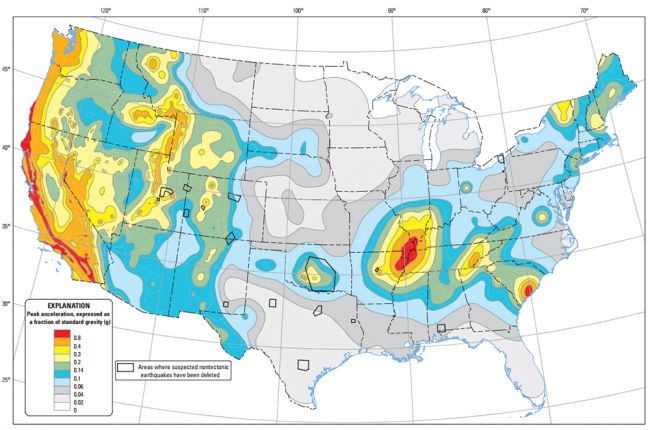Resilient Riverside
Understanding and preparing for the potential impacts of natural disasters is a way of life in California. We have recently experienced historic fires and large seismic events across the state that necessitate action on our part to better protect ourselves and our communities. Earthquake awareness, preparedness and resilience are critical components to preserving life and property in the City of Riverside. How we prepare proactively now and in the future is critical to our response and resilience should such an event occur locally.

The Building & Safety Division works tirelessly to ensure our built environment is constructed in a safe, structurally sound and code compliant manner adopting and enforcing the latest building codes and standards that help protect life and property in the City. Part of our mission involves education and outreach to ensure residents and visitors are safe when these events occur and to promote opportunities that raise awareness and resilience. There are many ways to educate and prepare yourself before an earthquake:
- Practice Drop, Cover, and Hold On with family and coworkers
- Secure heavy items in your home like bookcases, refrigerators, televisions, and objects that hang on walls
- Ensure gas water heaters are properly secured structurally to prevent breaks and the chance of fire or explosion
- Create a family emergency communications plan that has an out-of-state contact. Plan where to meet if you get separated
- Make a supply kit that includes enough food and water for at least three days, shoes next to your bed, a flashlight, a fire extinguisher, and a whistle. Consider each person’s specific needs, including medication. Have extra batteries and charging devices for phones and other critical equipment. Do not forget the needs of pets and service animals
- Consider obtaining an earthquake insurance policy. A standard homeowner’s insurance policy does not cover earthquake damage and there are more and more affordable options available. Discuss with your insurance lender
- Consider making structural (retrofitting) improvements to your home or business to reinforce weaknesses that could cause your building to slide, overturn or collapse during an earthquake. (Refer to the Brace & Bolt Program for guidance)
- Ensure you know how to turn off your gas and electrical service after a large event occurs to help prevent fire or explosion
If an earthquake happens, protect yourself right away:
- If you are in a vehicle, pull over and stop. Set your parking brake
- If you are in bed, turn face down and cover your head and neck with a pillow
- If you are outdoors, stay outdoors away from buildings
- Do not get in a doorway
- Do not run outside
And always remember, stay safe during earthquakes: DROP! COVER! AND HOLD ON!
How Can You Participate?
- Riverside CERT Program
- September is National Preparedness Month/Ready.gov
- May is Building Safety Month
